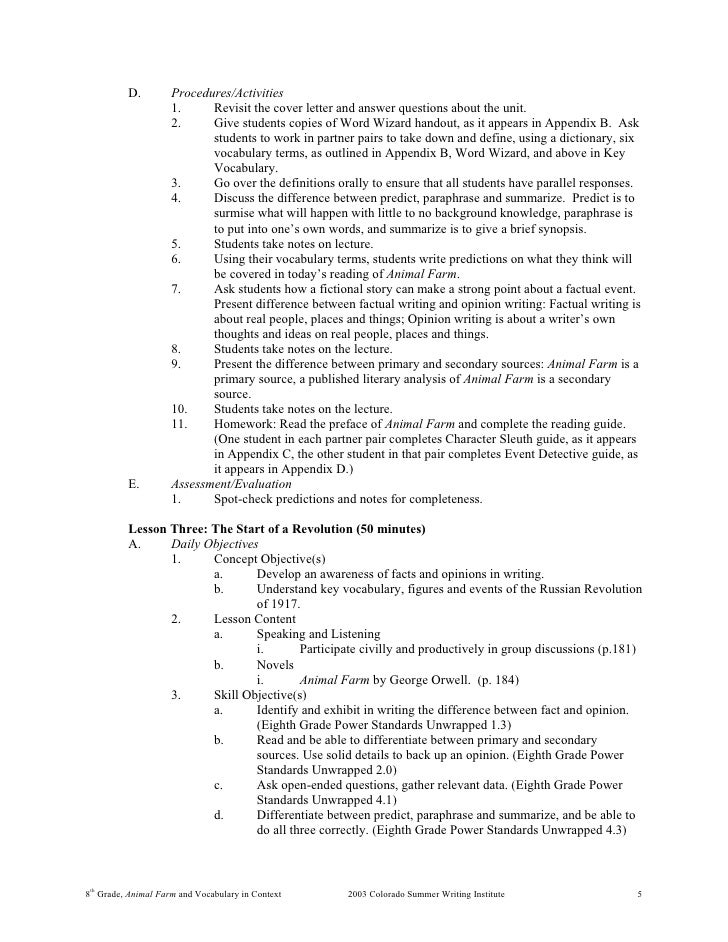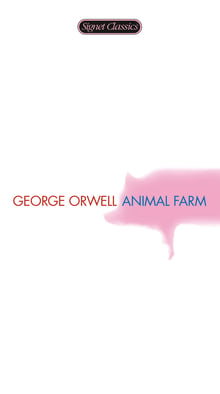An animal farm study guide answers

Buy animal farm: york notes for gcse (9-1) by wanda opalinska.
Animal Farm was published on the heels of World War II, in England in 1945 and in the United States in 1946. George Orwell wrote the book during the war as a cautionary fable in order to expose the seriousness of the dangers posed by Stalinism and totalitarian government. Orwell faced several obstacles in getting the novel published. First, he was putting forward an anti-Stalin book during a.
- Buy animal farm: york notes for gcse (9-1) by wanda opalinska. Political philosophy primary source answers. Pdf as a group work. Coordination-group-publications-ltd-cgp book depository. Smashwords – study guide: george orwell's animal farm – a book. Animal farm study guide (answer key).
- Animal farm study guide answer key student copy is available in our digital library an online access to it is set as public so you can download it instantly. Our book servers hosts in multiple countries, allowing you to get the most less latency time to download any of our books like this one.
- Animal Farm: Study Guide Answer Key Chapters 1 – 3 1. Identify Old Major, Boxer, Clover, Benjamin and Mollie. Old Major was an old pig highly regarded by the.
Animal Farm Study Guide Answers Key English
Gcse english literature | ebay.

Animal farm.
Call of the wild, novel units teacher's guide, grades 7-8: jack.
Williamsburg academy course hero.
Animal farm audiobook by daniel moran 9781611068412.
Animal farm study guide | novelguide.
 Animal farm study questions | study. Com.
Animal farm study questions | study. Com.Animal Farm Study Guide Answers Key Pdf
Animal Farm was published on the heels of World War II, in England in 1945 and in the United States in 1946. George Orwell wrote the book during the war as a cautionary fable in order to expose the seriousness of the dangers posed by Stalinism and totalitarian government. Orwell faced several obstacles in getting the novel published. First, he was putting forward an anti-Stalin book during a time when Western support for the Soviet Union was still high due to its support in Allied victories against Germany. Second, Orwell was not yet the literary star he would quickly become. For those reasons, Animal Farm appeared only at the war’s end, during the same month that the United States dropped atomic bombs on Hiroshima and Nagasaki. The tragically violent events of the war set the stage well for Orwell’s fictional manifesto against totalitarianism.
Animal Farm was Orwell’s first highly successful novel (the second being 1984), and it helped launch him out of the minor fame of an essayist into the stratosphere of acclaimed fiction. Despite publishers’ initial hesitance toward the book, the public in both Britain and the United States met it with enthusiasm. In the United States alone, it sold 600,000 copies in four years. Animal Farm was translated into many languages, proving its universal reach.
Animal Farm Study Guide Answer Key
Animal Farm is an allegory or fable, a fairy tale for adults. Orwell uses animal characters in order to draw the reader away from the world of current events into a fantasy space where the reader can grasp ideas and principles more crisply. At the same time, Orwell personifies the animals in the tradition of allegory so that they symbolize real historical figures. In their own universe, people can become desensitized even to terrible things like deception, mistreatment, and violence. By demonstrating how these things occur in an allegorical world, Orwell makes them more clearly understood in the real world. For instance, in Animal Farm’s public execution, Orwell lays bare the matter of execution by having the dogs rip out the supposed traitors’ throats. In this scene, the reader is led to focus not as much on the means of execution as on the animalistic, atrocious reality of execution itself.
Animal Farm is also a powerful satire. Orwell uses irony to undermine the tenets of totalitarianism, specifically that of Stalinism.
Almost instantly after the novel’s publication, it became the subject of revisionism. In one instance, the CIA made an animated film version of the book in which they eliminated the final scene and replaced it with a new revolution in which the animals overthrow the pigs (see the 1999 Hallmark film version for another change in ending). They distributed the film as anti-communist propaganda, which is ironic when one considers the novel’s own censure of the propagandist rewriting of history. This revision and others over the years (whether in changing the story or interpreting it) contributed to the public’s general misunderstanding of Orwell. Though he was staunchly anti-Stalinist, he was certainly not a capitalist. In fact, he was a revolutionary socialist. During his lifetime, Orwell did little to detract from his skewed public image. He was a man of contradictions--Louis Menand calls him “a middle-class intellectual who despised the middle class and was contemptuous of intellectuals, a Socialist whose abuse of Socialists ... was as vicious as any Tory’s.”
Animal Farm is universally appealing for both the obvious and the subtle messages of the fable. While the allegory’s characters and events are deeply or specifically symbolic, Orwell’s narrator softens some of the punches by including a gentle and un-opinionated narrator. The third-person narrator is outside the animals’ world, so he does not relate any of the lies, hardships, or atrocities firsthand. Rather, he is a quiet observer.
Moreover, the narrator relates the tale from the perspective of the animals other than the dogs and pigs. In this way, the narrator’s approach to the story resembles Orwell’s approach to life. That is, just as Orwell developed empathy for the working class by experiencing working-class life firsthand, the narrator’s tale is based on the experience of someone who is not quite an insider but no longer just an outsider. The narrator’s animal perspective, as well as his reluctance to opine, fits well with the naivete of the animal characters.
One example of the narrator’s indifferent approach to the tale is evident when the pigs use the money from Boxer’s slaughter to buy a case of whisky. Rather than relating this event in stark terms, the narrator states impartially that on the day appointed for Boxer’s memorial banquet, a carton arrives at the farmhouse followed by loud singing and “the word went round that from somewhere or other the pigs had acquired the money to buy themselves another case of whisky” (126). The scene also exemplifies how the narrator’s naïve perspective produces an drily ironic effect.

Animal Farm Comprehension Questions Pdf
Here are two other examples of ironic humor in the novel. In Chapter I, the narrator describes “Beasts of England” as “a stirring tune, something between ‘Clementine’ and ‘La Cucaracha’” (32). Anyone familiar with those two songs knows that they are childish ditties. In Chapter IX, the narrator reports that the pigs find “a large bottle of pink medicine” in the farmhouse’s medicine cabinet. They send it out to Boxer, who is deathly ill. We can assume that the medicine, being pink, is the antacid Pepto-Bismol, hardly useful to someone on his deathbed. By lightening his allegory with ironic humor, Orwell makes the story more palatable without taking away from his message.